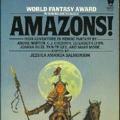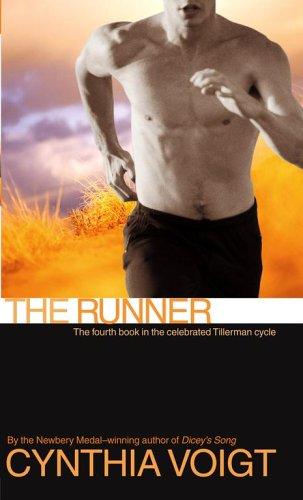radio-appears reviewed The Runner by Cynthia Voigt (Tillerman Cycle, #4)
Review after a re-read
Cynthia Voigt is one of those authors whose work more or less became an integral part of my personality. I discovered her series on the Tillermans around thirteen years old, and read and re-read these books throughout my teens, deeply identifying with the protagonists and their coming-of-age struggles.
“The Runner” was never my favourite, but it was still nice to revisit, now that I have some adult perspective.
In other Tillerman-books, Bullet is already a background character. The uncle who died tragically in Vietnam but left a deep impression on the people who knew him in his short life. In this book we actually get to meet him. In the earlier books, Bullet is understandably placed on a bit of a pedestal by the characters, but I don’t know if this story does a good job of taking him off of it. He’s presented as an extremely talented athlete, very intelligent (though he squanders it) and well-liked by the other students, even if he doesn’t like them. Quite unrealistic, considering his personality. He’s a tough character to like for the reader. He’s very angry, and it’s not pleasant to spend a lot of time in his head with his thoughts. His philosophy of hard work and extreme self-reliance seems attractive at first, but reading between the lines, it doesn't seem to make him any happier. It’s easy to empathise with this anger at first. His cold, authoritarian father is straight-up abusive, has already chased off his older brother and sister, and strains his relationship with his mother. Bullet himself would also rather risk his life in Vietnam than staying on his family’s farm, even if this means he could avoid conscription. He seems to love the farm itself but can’t stand staying a second longer than he has to. This anger seeps through his entire personality and life. He’s arrogant, self-isolating and holds contempt for nearly everyone in his life. He holds contempt for the jocks who beat up a black guy in his recently racially integrated high school. He holds contempt for the hippie students, who protest against the war and in favor of racial equality. He holds contempt for the teachers who try to get through to him. He holds contempt for his sister’s boyfriend, who is a shameless cheater, and he holds contempt for his sister for running off with a guy like that in the first place. Oh, and he also holds deep contempt for black people, because he’s racist. The narrative makes it clear that he was raised with racist beliefs, but he has no desire to divest himself of them. He resents any attempts at changing his mind because he seems to view it as yet another external force trying to control him, just like his father. It’s one of the cases in which his strong will becomes a form of stubbornness that doesn’t actually benefit him. What does seem to reach him, however, is that the only two people in the entire book who can meet his incredibly high standards are both black.
In the lack of value he places in achievement, relationships and even his own life, I think I can recognize a particular strain of teenage depression. Something that he might have grown out of, eventually, in the same way that his interactions with black people in this book may have eventually led him to let go of his racism. The real tragedy is of course that he never gets to be that person. We don’t know if he could’ve, would’ve reached his full potential, because he dies off-screen in a senseless war.

